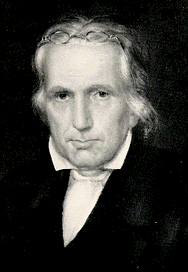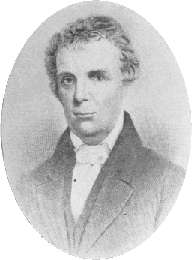Restorationism
Restorationism, also known as Christian Primitivism, refers to the belief and movement within Christianity advocating for the restoration of the original church established by Jesus Christ and his apostles. This movement seeks to base its practices, beliefs, and church structure directly on the New Testament scriptures, aiming to replicate the early Christian community's faith and practices before the development of later church doctrines and structures.
Origins and Development[edit | edit source]
The roots of Restorationism can be traced back to the Reformation in the 16th century, where figures like Martin Luther and John Calvin sought to reform the Roman Catholic Church based on scripture. However, Restorationism as a distinct movement emerged in the 18th and 19th centuries, particularly in the United States, where there was a strong emphasis on religious freedom and a desire to return to apostolic Christianity.
Key movements within Restorationism include the Stone-Campbell Movement, the Anabaptists, and various Pentecostal and Charismatic movements. Each of these groups, while diverse in their beliefs and practices, shares the common goal of restoring the early church's purity and simplicity.
Beliefs and Practices[edit | edit source]
Restorationist groups typically emphasize the authority of the Bible as the sole source of Christian doctrine, rejecting traditional creeds and the authority of church tradition. They often advocate for a return to New Testament patterns of worship and church organization, including the practice of adult baptism by immersion, the weekly observance of the Lord's Supper, and the leadership of the church by elders and deacons as described in the New Testament.
One of the distinctive beliefs of some Restorationist groups is the concept of the priesthood of all believers, which asserts that every Christian has direct access to God without the need for a hierarchical clergy. This belief often leads to a congregational form of church governance, where decisions are made collectively by the members of the congregation.
Impact and Criticism[edit | edit source]
Restorationism has had a significant impact on the landscape of American Christianity, leading to the formation of several denominations and influencing broader Christian thought and practice. Its emphasis on biblical authority and the desire to return to early Christian practices has resonated with many believers seeking a more authentic form of Christianity.
However, the movement has also faced criticism from both within and outside the Christian community. Critics argue that the quest for a pure and unadulterated form of Christianity overlooks the historical development of Christian doctrine and the role of tradition in shaping faith. Additionally, the diversity of interpretations among Restorationist groups has led to questions about which version of early Christianity should be considered authentic.
Conclusion[edit | edit source]
Restorationism represents a significant and influential movement within Christianity, driven by the desire to return to the faith and practices of the early church. While it has contributed to the diversity of Christian expression and prompted important discussions about the sources of Christian authority and practice, it also highlights the challenges of interpreting and applying ancient texts to contemporary faith communities.
This article is a Christianity-related stub. You can help WikiMD by expanding it!
Transform your life with W8MD's budget GLP1 injections from $125 and up biweekly
W8MD offers a medical weight loss program NYC and a clinic to lose weight in Philadelphia. Our W8MD's physician supervised medical weight loss centers in NYC provides expert medical guidance, and offers telemedicine options for convenience.
Why choose W8MD?
- Comprehensive care with FDA-approved weight loss medications including:
- loss injections in NYC both generic and brand names:
- weight loss medications including Phentermine, Qsymia, Contrave, Diethylpropion etc.
- Accept most insurances for visits or discounted self pay cost.
- Generic weight loss injections starting from just $125.00 for the starting dose
- In person weight loss NYC and telemedicine medical weight loss options in New York city available
Book Your Appointment
Start your NYC weight loss journey today at our NYC medical weight loss, and Philadelphia and visit Philadelphia medical weight loss Call (718)946-5500 for NY and 215 676 2334 for PA
Search WikiMD
Ad.Tired of being Overweight? Try W8MD's NYC physician weight loss.
Semaglutide (Ozempic / Wegovy and Tirzepatide (Mounjaro / Zepbound) available. Call 718 946 5500.
Advertise on WikiMD
|
WikiMD's Wellness Encyclopedia |
| Let Food Be Thy Medicine Medicine Thy Food - Hippocrates |
Translate this page: - East Asian
中文,
日本,
한국어,
South Asian
हिन्दी,
தமிழ்,
తెలుగు,
Urdu,
ಕನ್ನಡ,
Southeast Asian
Indonesian,
Vietnamese,
Thai,
မြန်မာဘာသာ,
বাংলা
European
español,
Deutsch,
français,
Greek,
português do Brasil,
polski,
română,
русский,
Nederlands,
norsk,
svenska,
suomi,
Italian
Middle Eastern & African
عربى,
Turkish,
Persian,
Hebrew,
Afrikaans,
isiZulu,
Kiswahili,
Other
Bulgarian,
Hungarian,
Czech,
Swedish,
മലയാളം,
मराठी,
ਪੰਜਾਬੀ,
ગુજરાતી,
Portuguese,
Ukrainian
Medical Disclaimer: WikiMD is not a substitute for professional medical advice. The information on WikiMD is provided as an information resource only, may be incorrect, outdated or misleading, and is not to be used or relied on for any diagnostic or treatment purposes. Please consult your health care provider before making any healthcare decisions or for guidance about a specific medical condition. WikiMD expressly disclaims responsibility, and shall have no liability, for any damages, loss, injury, or liability whatsoever suffered as a result of your reliance on the information contained in this site. By visiting this site you agree to the foregoing terms and conditions, which may from time to time be changed or supplemented by WikiMD. If you do not agree to the foregoing terms and conditions, you should not enter or use this site. See full disclaimer.
Credits:Most images are courtesy of Wikimedia commons, and templates, categories Wikipedia, licensed under CC BY SA or similar.
Contributors: Prab R. Tumpati, MD








